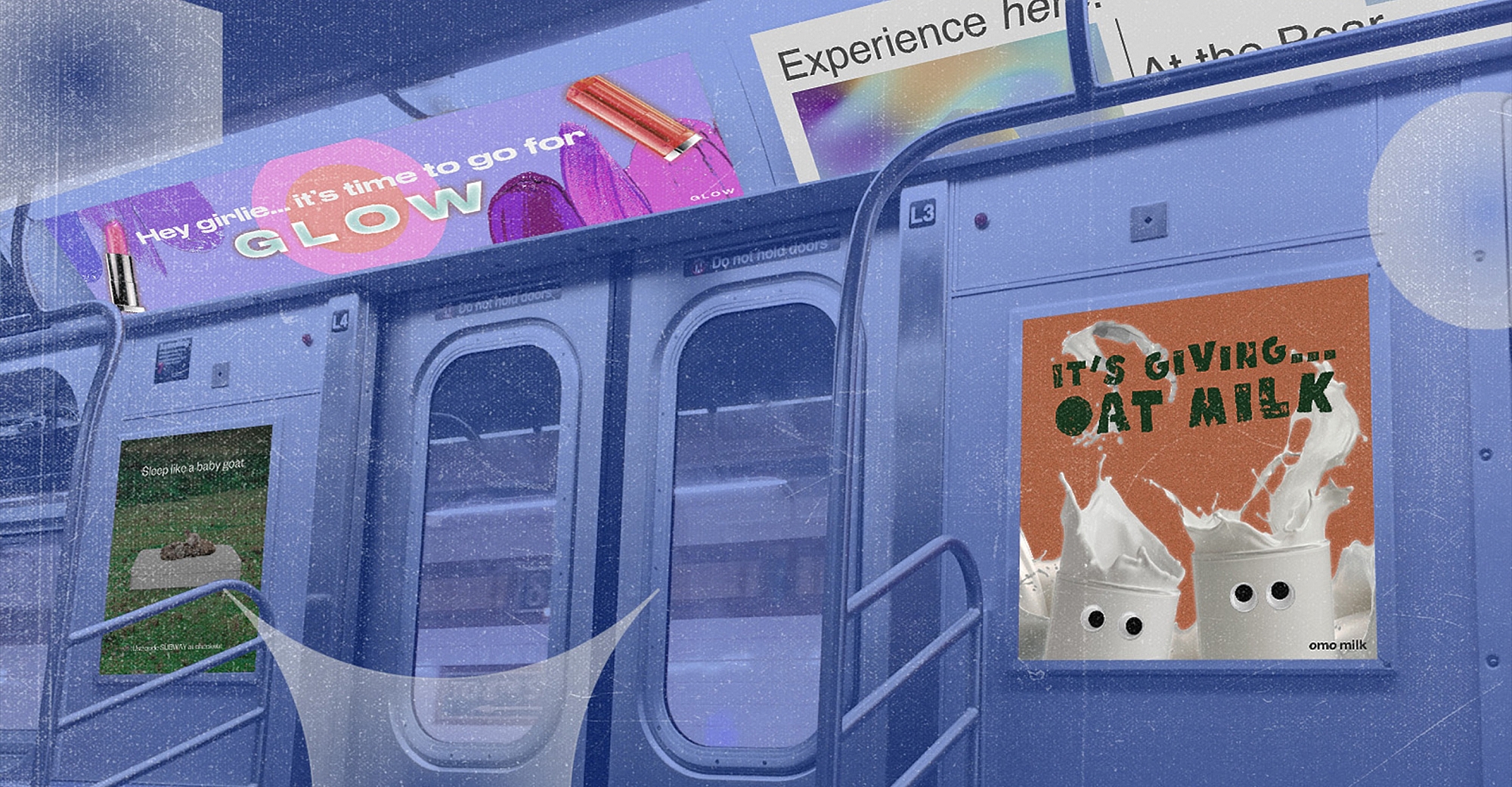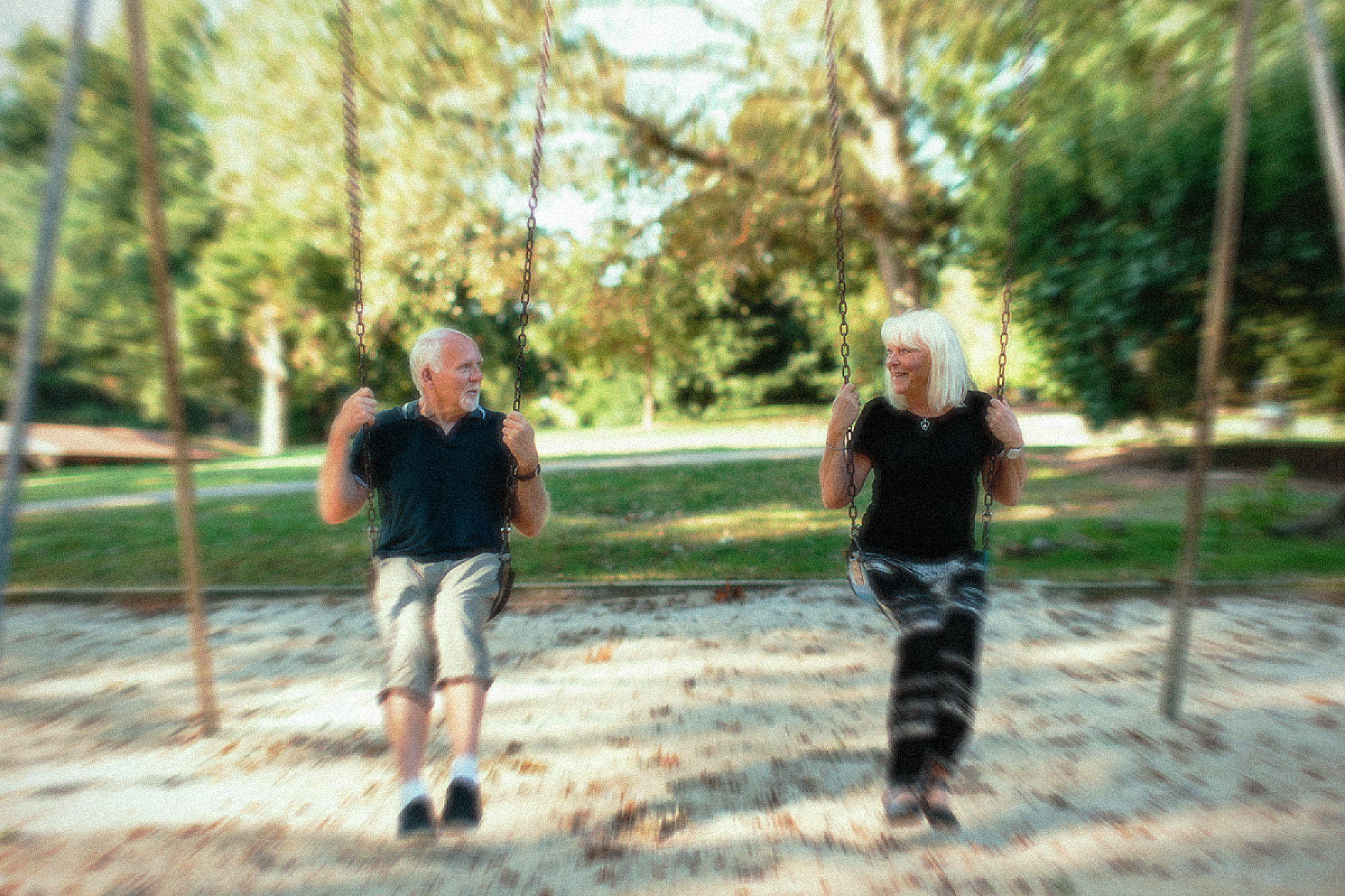The Latest Social Media Trend? Refusing to Engage

- Text D1A Staff
- Design D1A Staff
Like any good joke, there is perhaps a veiled truth to the darkly habit-forming act of “doomscrolling” or the proposed illness of being “terminally online.” These are diagnoses we all, at some point in our very online lives, receive. According to Pew Research Center, 46% of young Americans characterize themselves as “almost constantly” online, and 48% admit to using the internet “several times a day.”
Discourse has emerged—where else, online—that proffers a different approach to how much time we spend staring at a screen. At first it was simply labeled a symptom of a larger “vibe shift.” That has evolved into a wider movement to log off, and more recently among a smaller faction of Gen Z, a stark refusal to engage—a staunch avoidance of anything happening in mainstream culture: not for lack of interest, but to rescue one’s mental wellbeing before developing a dissociative lobotomy pout.
As brands have long used culture as the vehicle to deliver their messaging, it is becoming increasingly onerous to break through when your target demo is rethinking how much time they spend online and how they use social media. Are there inventive ways to reach consumers—gasp—offline? We gathered a crew of plugged-in D1Aers to weigh in on how to balance a culture diet and some tips on what brands can do to impactfully reach their audiences.








Describe the feeling(s) you experience while scrolling social media.
Tiffany: I have mixed feelings about scrolling. Sometimes it's enjoyable (especially if I wanna stop thinking for a bit) but other times it feels really draining and consumes too much of my time. For me, it's hard to log off because I feel so caught up on what's happening right now.
Paige: Initially, joy and enjoyment. I feel like that eventually drops off into some form of anxiety/dread/bad mood that ends up permeating into my life.
Emma: Agreed—most of the time I enjoy it or I find things that inspire me but more increasingly I feel too consumed with what everyone else is doing and have a sense of falling behind or FOMO for things I maybe didn't even realize I was missing!
Andrew: It's overwhelming, it's fun, it makes me hate myself, it makes me feel good that I'm smarter than some people out there, it makes me want to engage in fun convos, it makes me never want to talk to anyone again, it makes me annoyed, it makes me laugh, it entertains me, it keeps me informed on issues, it makes me roll my eyes, it makes me belong to communities, it allows for interaction. All of the above.
Asia: Feels like a constant pool of the same thing. Whether it's everyone doing the same trend; meme pages posting literally the same TikTok; people using the same graphics. I have a limited amount of fake laughs in me when people send me the same funny posts on socials.
Was there a specific “moment” in the cultural cycle that you began to experience social media fatigue and considered quitting? Or have you made any conscious decisions recently to limit your time online or on social?
Sophie: I had one the other day. My screen time was creeping up and it was becoming so repetitive that I just closed and deleted the app. (TikTok was the app.)
Asia: TikTok is the app I've deleted or stopped using the most.
Emma: Honestly within the last year. I made an effort to not constantly check or feel pressure to always be in the know.
James Corden BANNED from Ryanair pic.twitter.com/JcmSgNA2fO
— Ryanair (@Ryanair) October 18, 2022
Paige: Definitely deep 2020/2021 when all we could do was sit around and scroll. I had a lot of thoughts like, "Why am I getting so much enjoyment out of this? Why can't I have more productive hobbies?" And the worst, "Why am I even making a living out of being 'online' and following this when there are so many other, bigger things that matter?" It's better now that things have opened back up, but these thoughts creep up every now and again.
Andrew: I used to be a social media manager for a lot of brands, and I actually burned out and quit my job of three years. A big part of it was the constant heaviness of 2020, working from home and the constant feeling of a lot of people not understanding the toll that job takes on your mental [health], because you're on 24/7.
Brands are forced to post so frequently now—I think we’re all craving quality over quantity.
- Sophie
How important do you think a brand’s social media presence on their owned pages—frequency of posting, voice, imagery—is to your perspective of them?
Paige: It only affects my perception of them if it's bad (like, totally not understanding social or culture) or overly cringe. Otherwise, I just feel solidarity with all the other humans like us behind those accounts getting paid to post, write content, etc.
Asia: On the other hand, I pay attention when they're actually funny or with the current culture in a truly relevant way similar to Duolingo.
Sophie: Brands are forced to post so frequently now—I think we’re all craving quality over quantity.
Andrew: I think it's important to caveat these answers with the fact that we all work in social/digital marketing and branding, so we are probably answering a little differently than most of the population. I think that distinction is something I'm always trying to remind myself, because I really don't care how much a brand posts, and I don't think a lot of people do. But it's easy to get caught up in the idea that we shouldn't post that much. I don’t care, post as much as you want, post the imagery you want. If it's bad and comes across my feed, it's definitely getting clowned in the group chats though.
Asia: I value authenticity at this point. A lot of brands seem like they're forcing it.
Sophie: There’s not a lot of incentive for originality.
Fico: I used to run a couple of brand accounts on Twitter and the whole experience made me a little biased against all of it. Even when a brand has a fun culture win on social, a lot of times the marketers behind it all have no clue what is even happening.
A ‘social idea’ does not always have to live on social, when you know that it'll end up on social via the way people act.
- Andrew
Have you seen any inventive ways or examples of brands that have been able to reach people who are “offline”?
Asia: Commercials are usually the main things that come to mind. But it's usually the ones that have some gimmicky surprise reviews like the Swiffer, Febreze… Some horror movies do a lot of “What would you do?” style pranks in coffee shops. Oscar Mayer hot dog truck.
Andrew: I think Netflix consistently does a pretty good job with out-of-home marketing. From smart billboards and posters to pop-up events. They are definitely a brand I look to for cool activations and OOH. One of my favorites was the stickers they did for Narcos!
Sophie: I love that because social is becoming video-forward there is room to highlight guerrilla marketing campaigns like the Smile example in a new way.
Asia: That just reminded me of A24. The Everything, Everywhere All at Once merch that they made. But that was def social first.
Fico: I don't know if this counts but it was for a fashion brand technically, but I haven't stopped thinking about Bella Hadid getting her dress sprayed on during the [Coperni] runway show.
Andrew: I also think a "social idea" does not always have to live on social when you know that it'll end up on social via the way people act. So you can have a social idea that actually pulls in people that are not on social at the same time. Examples: Smile at baseball games, Drake's CLB billboards announcing the featured artists, the Narcos example above. They are all inherently social ideas because they know it'll get posted all over social, but can easily and widely reach people "offline" too.
How would you personally prefer for a brand to get their message to you without feeding into this issue of forced interactions and being constantly online?
Kelsey: The brand my friends and I talk about most is Nuuly and I don't even follow them on any platform.
Asia: Audience participation always seems fun in theory.
Fico: For me, I appreciate when brands appear organically when I already have purchase intent or consideration. When I see someone wearing a jacket I like on Instagram and I click on the image and get directed to that exact item on the IG shop??? The perfect scenario for me.
Andrew: You can break through without being constantly online... But unless the people behind the brand and the ideas are constantly online, then it's hard to know how to break through. And that, my friends, is where the frustration and overwhelming dread of unplugging that marketers feel comes from.
Paige: I like when brands have such a strong product/service/benefit/etc. where I'm hearing about them from not overly online people in my life (my friends, family members, spouse). It sounds old school but I truly appreciate a good recommendation/word of mouth.
The new horror movie “Smile” is marketing itself by having actors infiltrate MLB games
— astro (@alilastroo) September 28, 2022
Paramount placed these actors in the crowd at recent baseball games and had them stand motionless, and smile throughout the entire game, directly at the broadcast cameras. pic.twitter.com/1km8ZFcH1l
Working in an industry that necessitates being on top of culture, how do you make sure you know what’s going on without feeling overwhelmed?
Fico: I don’t. I 100% feel overwhelmed.
Kelsey: I have an entire separate Instagram account for following brands that I feel like I need to know about. I don't want my personal feed filled with brands. I'll add that I have this account to probably feel like I know what is going on, but I rarely scroll it.
Andrew: I turn off retweets on Twitter.
Emma: I recently purged who I was following on all platforms to try and create feeds (where I can) that tell me exactly what I want and keep me in the loop on exactly what I want to be looped in on.
Paige: I recently set a timer on my phone for when I'm scrolling TikTok (15 minutes) and then I have to get up and do something else.
Asia: I stop using social media for a while and catch up on other mediums like movies and TV shows. I rely on podcasts too.
Sophie: So healthy.
Fico: I try to proactively make time for offline activities that keep me away from the feed for prolonged periods of time, like reading and playing video games.
Paige: Yes! Finding offline hobbies (gym, volunteering) has been crucial.
Andrew: I am very liberal with the unfollow and mute buttons on social.
Sophie: Loooove to mute.
Andrew: I also think it's important to talk to people in our lives that aren't just in our NYC bubbles, but NYC is such a bubble with trends and news and what is actually getting to the rest of the country. So, if my friends back home or in other states and cities aren't hearing about something, it helps me check myself on something that maybe doesn't actually matter, and vice versa helps me realize if something is for real and a big deal.
Fico: This also applies to being online "on your side" of TikTok or Twitter. Sometimes what you think is trending is just a very small microtrend in a very small pocket of the world.



